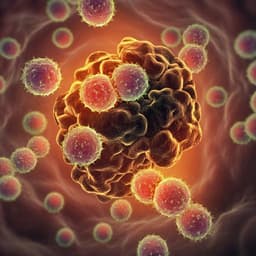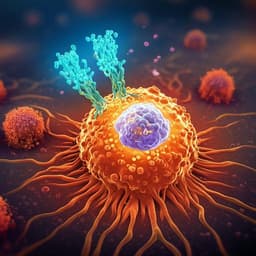
Medicine and Health
Adapter CAR T cells to counteract T-cell exhaustion and enable flexible targeting in AML
D. Nixdorf, M. Sponheimer, et al.
Discover the innovative 4dCAR T-cell platform for AML immunotherapy developed by D. Nixdorf and colleagues. This groundbreaking approach tackles the critical challenges of target antigen heterogeneity and T-cell dysfunction, demonstrating promise through its effective cytotoxicity against AML. Experience a new frontier in cancer treatment!
Related Publications
Explore these studies to deepen your understanding of the subject.







